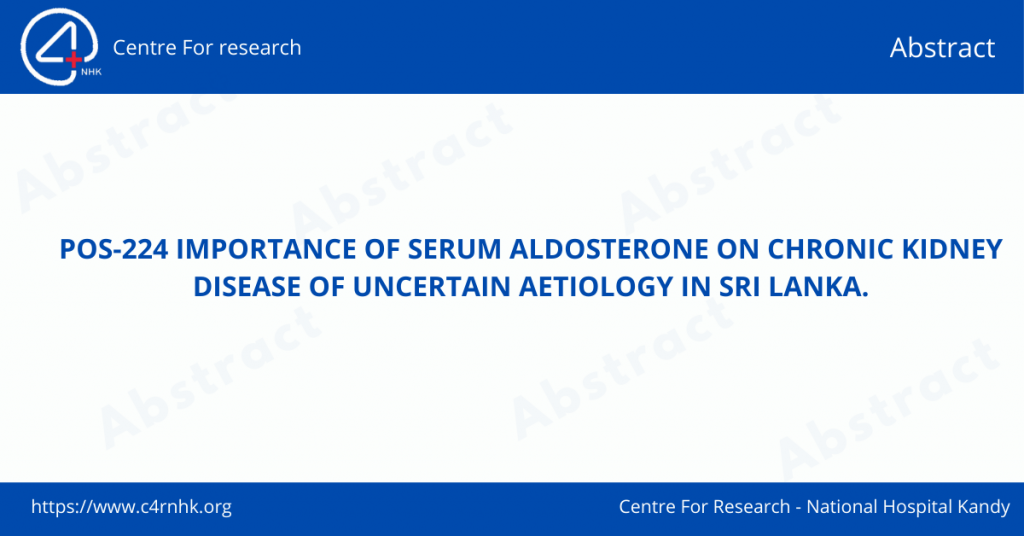Nanayakkara N, Wazil AWM, Ratnayake RMCSB, Rope R, Dickovita DKSS, Gunerathne EDL, Sexana A, Anand S
Affiliations – None
Introduction and Objectives
Chronic Kidney Disease (CKD) has been a major burden for Sri Lanka, with a high prevalence among young, otherwise healthy, paddy farming population. Majority of CKD of unknown etiology (CKD-u) patients reach End Stage Renal Disease (ESRD) during their lifetime with extremely poor outcome. Our objective is to study the effectiveness of Continuous Ambulatory Peritoneal Dialysis (CAPD) first policy, linked with a comprehensive patient support program, in a CKD-u endemic area.
Method
All staff members in the renal clinic were included in the CAPD team after an onsite training program. All patients with ESRD were offered CAPD as the preferred mode of RRT. All selected patients, after an initial counselling, underwent a comprehensive program, which included counselling, medical and social assessment, training, support and monitoring.
Results
237 ESRD patients were considered for the study and 40 patients who required RRT were selected and counseled. During the study period, from January 2015 up until now, 14 patients were initiated on CAPD, comprising 11 males and 3 females, and the age varied from 26 to 62 years. There were no hospital admissions due to renal failure, although number of complications were recorded (6 episodes of peritonitis, 1 case of inguinal hernia). There was one deaths due to a cardiac event.
Conclusion
Our limited experience suggests that, a well-supported CAPD program is an effective mode of RRT in rural, dry zone of Sri Lanka, under low socio economic status.


